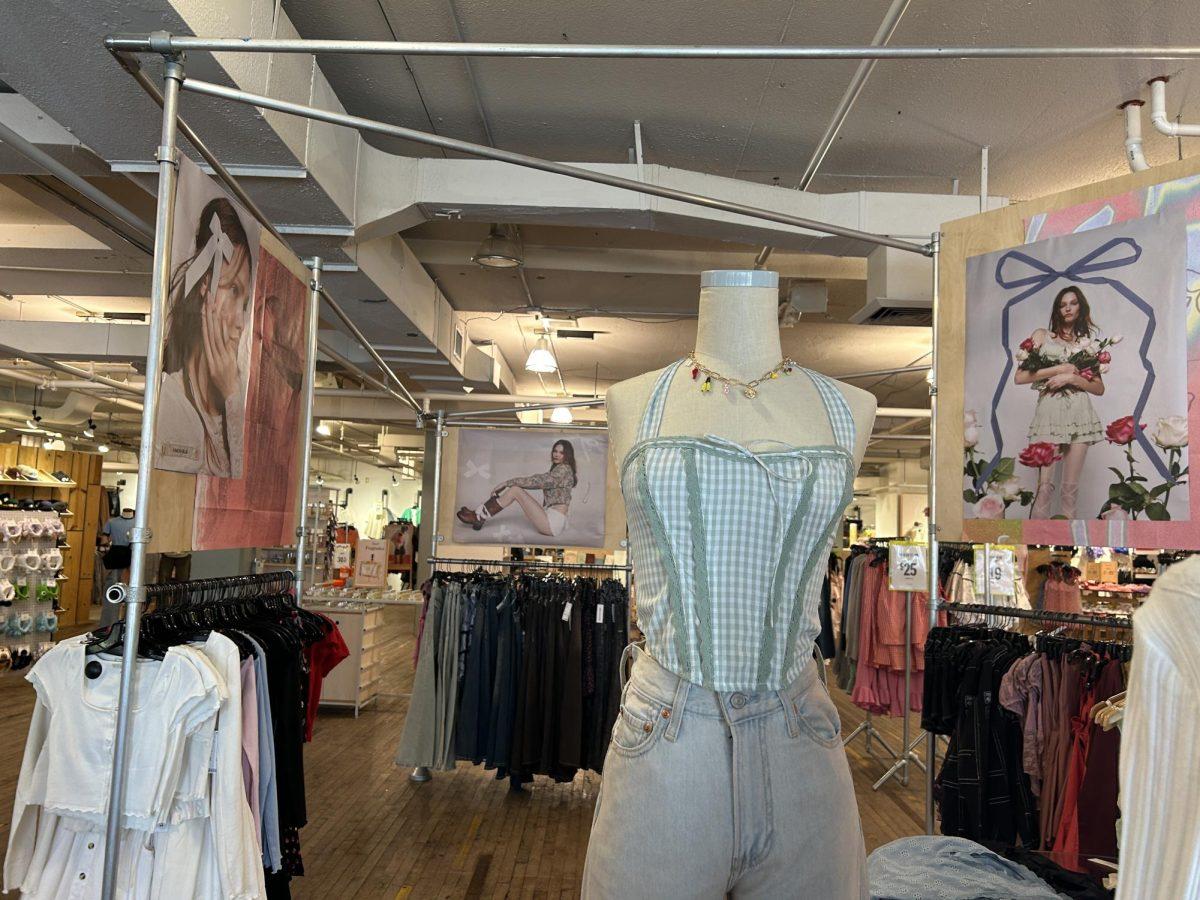A good number of people would have trouble explaining what happened to the moog or, in some cases, what it even is. To clarify, the term ?moog? describes that odd set of electric instruments invented in 1964 that had more dials than strings or keys. But they aren?t used much these days for at least one good reason. After Yes had their heyday, people realized it just wasn?t that cool to pair nerdy electronics with even nerdier prog bands.
I ponder the demise of the grandfather of all electronic ?axes? ? and in case you?re curious, uncle twice-removed of the theremin and Wurlitzer ? to question why music with a touch of the digital often gets so little respect.
Now, I?m not talking turning the amp up to 11 (Remember Spinal Tap?) or throwing down some loops like our favorite avian violinist, Andrew Bird. Any band or artist with a budget higher than that of an open-guitar-case street performer can add a pedal to their repertoire and give their recordings some fancy studio overhaul.
But what about those who use the electric not just as an accent, but as a fundamental base for their craft? Plenty of musicians do it, though some are a bit more worthy of a listen then others.
They also don?t encompass one genre, which is why it?s so unfortunate that some like to think of such artists as one talentless tangle of wires. And they even hail from numerous nations and cultures: goa in India, dubstep in London, electro in Sweden, hipster a-la-cart in the States and house and techno just about everywhere.
But for a while, classic rock and jazz made musicians who used silly gadgets looked like novelties ? and in a way, they were right. But along came the ?80s, and suddenly synthesizers were cool again.
Blondie?s ?Call Me? rocked its way to No. 1 on the Billboard radio charts in 1980, and Pink Floyd?s ?Another Brick in the Wall? followed with a close second. The very next year, ?Bette Davis Eyes? was the hit to beat. But in 1984 Prince took the charts again with his ?When the Doves Cry,? an almost mechanic sounding track, and by 1987 Jefferson Airplane was in the top five again with its most notoriously synthesizer heavy incarnation, Starship.
Through the early late ?70s and early ?80s, the Talking Heads guided New Wave into innovative territory, incorporating synthesized instrumentation and less organic syncopation into their work. By 1984, they had released their live opus, Stop Making Sense, highlighting these tendencies in hits such as ?Once in a Lifetime,? the sonically lush ?Heaven? and the decade-defining ?Burning Down the House.?
But what really made electronic music viable was the birth of new genres putting down their guitars and pianos in favor of keyboards, synthesizers and drum machines. Of these, one band changed what it meant to create music and set the stage for some of today?s best artists. That band was a quartet from Basildon, England, by the name of Depeche Mode.
Recording more than 10 hit albums before releasing their first Best Of collection in 2006, Depeche Mode became an extraordinarily successful musical outfit and did so by rewriting the rules on what instruments defined viable musicians. In fact, they often didn?t use traditional instruments at all, employing only synthesizers after vocalist Dave Gahan joined the band in 1980, the year they released their first single, ?Photographic.?
It?s fair to say Depeche Mode did start off as a simple dance-pop band, and their music wasn?t always the moody convention-altering techno-rock ? if I can call it that ? they are famous for today. But when they released the Top 10-achieving Violator in 1990, and eventually Ultra and Exciter later on in the decade, Gahan?s lyrics became darker and more introspective, and the band?s sonic qualities and songcraft evolved to match. In a manner that proved synthesizers weren?t just a way to sound hip, Depeche Mode began to use electronically produced tones to create particular moods, harnessing the often unnatural sonic qualities of their power-draining keyboards.
Today, due to the efforts of Depeche Mode and other experimentalists, musicians regardless of the instruments they use, can be respected by critics and fans alike. Because of innovative artists in the ?80s who expanded the conventions of the New Wave (and relatively equivalent neo-psychedelic movement in England) and altered the musical landscape of the new millennium, contemporary musicians aren?t bound by the stigmas of pop music?s past. Electric instruments and songwriting is not necessarily judged by its tools of creation, but rather its final artistic merit. And today?s musicians and their listeners likely take this for granted.
Regardless of whether it?s noticed, this creative freedom has nurtured some unique and exciting artists in recent years, all incorporating electronic elements into their work.
Pitchfork Media-pimped duos Junior Boys and The Knife, however, differ substantially in their sound from Goldfrapp and one another, but both garnered high marks for their latest albums. More important is the ability of both bands to make ground-up electronica and filtered vocals sound utterly organic and unpolished.
In the pop realm, Timbaland?s digital touch dominated this year?s charts, though he should probably stick to his phenomenal production work with Justin Timberlake instead of remixing OneRepublic. Calvin Harris? youth-inspired I Created Disco also finds its way into more and more hipster clubs, and he just comes out and says where his influences lie, declaring in a track that he?s ?Acceptable in the ?80s.?
So it seems electronica has evolved quite a bit over the years, but has done so gracefully, proving good music doesn?t have to be acoustic. And this is surely a reason for music lovers to rejoice, because without New Wave and without Depeche Mode, today?s masses might never have had a chance to worship before the pulsating pyramid of Daft Punk.
Cheers to high voltage.
If you care to harass Mike for not discussing Battles or even pondering the existence of electronica, e-mail him at ([email protected]).













